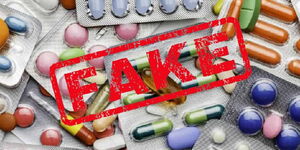Most people often suffer from ailments that they neither know nor understand how and where they got them from.
A new study has, however, revealed 8 top diseases that an individual can acquire from inheritance. The diseases include;
1. Heart Disease
Defects associated with the heart are often acquired through inheritance. A child born from an infected family is always at high risk of getting the disease as compared to a child born from a heart disease free family.
2. Asthma
The condition that causes difficulty in breathing is always associated with environmental factors. Research has, however, indicated that the disease can also be acquired through family lineage.
3. Epilepsy
Epilepsy is a neurological disorder marked by sudden recurrent episodes of sensory disturbance, loss of consciousness, or convulsions, associated with abnormal electrical activity in the brain.
The defect is often acquired through inheritance of genes from affected family relatives.
4. Breast cancer
The cause of most breast cancer is still a mystery. However, researchers have discovered that mutations in some particular genes, such as BRCA1 and BRCA2, cause some cancers. Women who inherit the mutation tend to get cancer early in life and in both breasts.
Men with BRCA1 have an increased risk of prostate cancer, while BRCA2 increases the likelihood of cancers in the male breast, prostate, pancreas, and elsewhere. Celebrity actress Angelina Jolie underwent a double mastectomy in 2013 after genetic tests showed she had a high risk of developing breast cancer.
5. Colour blindness
The defect involves problems in identifying and differentiating colours. The disease is acquired when an individual mostly men inherit a gene responsible for the condition of an affected person.
6. Dyslexia
This is a disorder that involves difficulty in learning to read or interpret words, letters, and other symbols, but that do not affect general intelligence.
The defect is often acquired from affected parents and relatives in one's lineage.
7. Sickle Cell Anaemia
The term sickle cell disease (SCD) describes a group of inherited red blood cell disorders. People with SCD have abnormal hemoglobin, called hemoglobin S or sickle hemoglobin, in their red blood cells.
People who have SCD inherit two abnormal hemoglobin genes, one from each parent. In all forms of SCD, at least one of the two abnormal genes causes a person’s body to make hemoglobin S. When a person has two hemoglobin S genes, Hemoglobin SS, the disease is called sickle cell anaemia. This is the most common and often most severe kind of SCD.
8. Diabetes
It is a disease in which the body’s ability to produce or respond to the hormone insulin is impaired, resulting in abnormal metabolism of carbohydrates and elevated levels of glucose in the blood and urine.
If one of your parents has diabetes, your chances of getting it immediately become significantly higher. However, if you are diabetic, it is by no means certain that your children will also be diabetic.












